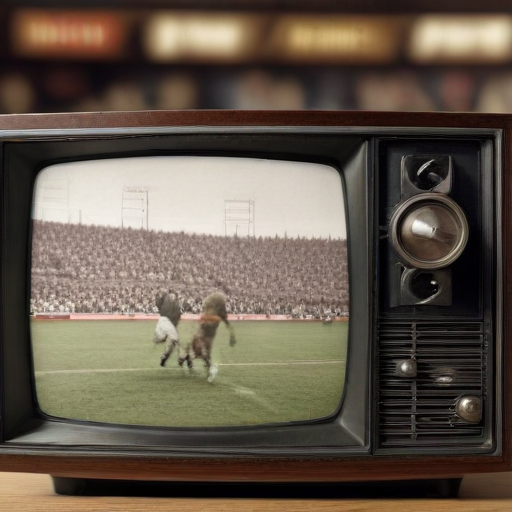A significant moment in sports television history occurred 50 years ago on December 9, 1974, when former Beatles member John Lennon made a surprise appearance during a “Monday Night Football” broadcast. While talking to announcer Howard Cosell, Lennon remarked on the sheer scale of American football, stating, “It’s an amazing event and sight. It makes rock concerts look like tea parties.” The game featured a matchup between the Washington team and the Los Angeles Rams at the Los Angeles Memorial Coliseum.
This brief, 90-second interview was not an isolated incident in the intertwining careers of Lennon and Cosell. The encounter led Cosell to invite Lennon to appear on his 1975 variety show, “Saturday Night Live with Howard Cosell,” though Lennon respectfully declined. Tragically, on December 8, 1980, just six years later, Cosell would break the news of Lennon’s assassination on live television, describing the event as an “unspeakable tragedy.”
The debut of “Monday Night Football” in 1970 changed American entertainment by attracting vast audiences to professional football in an era of limited TV options. This massive viewership greatly influenced the nation’s culture, economy, and even its birth rate, according to a cover story in Sports Illustrated at the time.
The program became known for its dynamic presentation, featuring colorful personalities like Cosell and special celebrity guests. On that memorable night in 1974, the show also planned to host California Governor Ronald Reagan and actor Elliott Gould, adding to the star-studded atmosphere.
Lennon’s appearance was serendipitous; Frank Gifford, an ABC announcer, had encountered him earlier that day at the Beverly Wilshire Hotel. Surprised by Lennon’s attendance, Gifford noted how uniquely significant the scene was, reflecting the potential for diverse individuals—like Lennon and Reagan—to find common ground in sports.
During the interview, Lennon expressed his confusion about American football while drawing comparisons to rugby. He was candid about his struggle to follow the game, saying, “I’ve been trying to follow the game, but I couldn’t understand why half the team was off and half the team was on.” His lighthearted interaction with Cosell showcased his personality, as Lennon humorously self-referred during the segment.
After their conversation, Lennon turned the focus back to Gifford, revealing his charm and charisma by saying, “Okay, Giffer, over to Giffer. Bye-bye,” before the game continued.
Five years after their encounter on “Monday Night Football,” Cosell pursued the idea of reuniting the Beatles, conveying a heartfelt desire to capture a historical moment from television history. Despite Lennon’s reluctance to revisit the past and the need to keep memories intact for fans, the notion of a Beatles reunion continued to intrigue Cosell.
Unfortunately, the celebration of Lennon’s life turned solemn in 1980 when his assassination occurred. Cosell and Gifford faced the difficult task of delivering this shocking news during a live football broadcast. They unflinchingly chose to prioritize the significance of the moment over the game itself, affirming Lennon’s unparalleled contribution to music and culture.
These unique intersections of sports and music demonstrate the profound impact both had on American society, and they create a legacy that allows us to remember Lennon not only as a musician but also as a memorable figure in the world of sports.
In sharing this poignant reflection on the intersection of music, sports, and cultural icons, we are reminded of the lasting connections they create in our lives. Such moments underscore the importance of recognizing the influence and intersectionality of varied cultural spheres, providing hope that future interactions can continue to inspire and unite different realms of entertainment and humanity.
